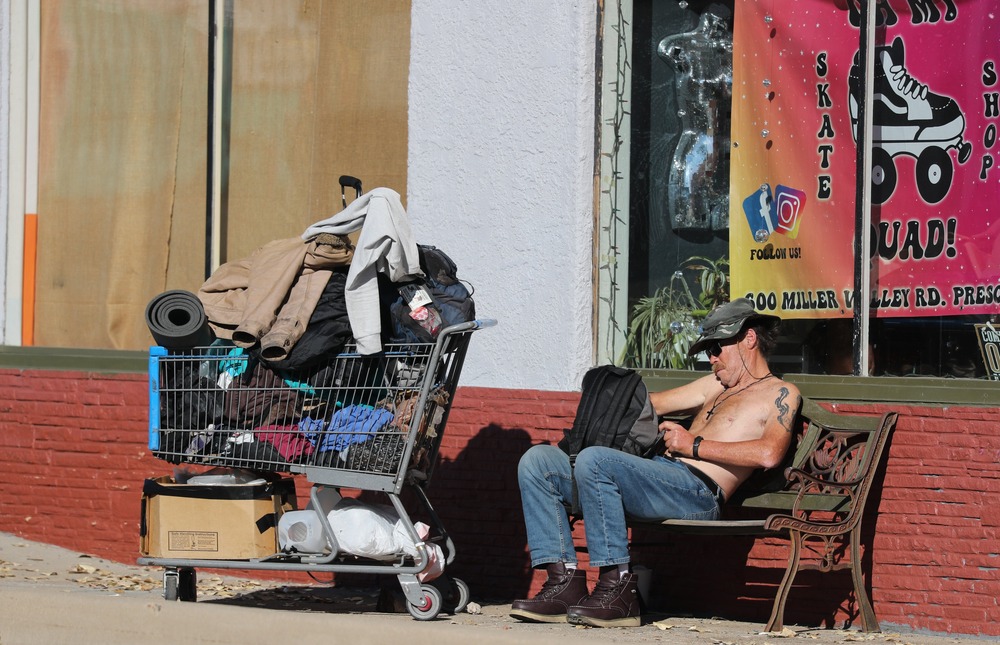
The United States saw an increase of about 18% in homelessness this year, a new record high, according to a federal report.
The U.S. Department of Housing and Urban Development released Dec. 27 its 2024 Annual Homelessness Assessment Report: Part 1: Point-in-Time Estimates, an annual report of the number of individuals in settings including shelters, temporary housing, and those who are unsheltered. The report found more than 771,000 people were experiencing homelessness on a single night in 2024, marking an 18% increase over the previous year. It is the highest number observed by the annual report since it began in 2007.
The report attributed the rise to a mix of factors including lack of affordable housing, a surge in migration, inflation, stagnant wages, "persisting effects of systemic racism" and natural disasters.
Officials said the report likely does not represent current circumstances, citing changes in some policies and conditions.
"No American should face homelessness, and the Biden-Harris Administration is committed to ensuring every family has access to the affordable, safe, and quality housing they deserve," HUD Agency Head Adrianne Todman said in a statement. Todman said that while the data from January 2024 "no longer reflects the situation we are seeing, it is critical that we focus on evidence-based efforts to prevent and end homelessness."
Todman pointed to the 55.2% reduction in the number of homeless veterans since 2010 as a sign of success. HUD officials also cited an 8% decrease in the number of veterans experiencing homelessness in 2024 from the previous year.
HUD officials blamed migration for having a "particularly notable impact on family homelessness, which rose 39% from 2023-2024." However, they argued the data was collected before President Joe Biden signed an executive order aimed at reducing unauthorized border crossings by asylum-seekers, and that rents have since stabilized.
The report also blamed the expiration of the extended child tax credit — enacted as part of the response to the COVID-19 pandemic — as also exacerbating the homelessness crisis.
The expanded child tax credit, part of the COVID-19-era 2021 American Rescue Plan, sought to help alleviate parents’ rising consumer costs during the pandemic, granting eligible recipients $3,000 per child between 6 and 17 years old, and $3,600 per child under the age of 6. Reports from the U.S. Census Bureau, academic institutions and other nonprofit research organizations found a significant decrease in child poverty as a result of the policy.
Advertisement
Lawmakers allowed the expanded version of the credit to expire at the end of 2021, despite calls from some Catholic groups, including the U.S. Conference of Catholic Bishops. An attempt to reach a bipartisan compromise to renew it fell apart in 2022.
The report also pointed to an increase in temporary homelessness in Hawaii as a result of the Maui wildfire.
According to the National Low Income Housing Coalition, the U.S. has a shortage of 7.3 million rental homes that are affordable and available to renters with extremely low incomes, defined as incomes "at or below either the federal poverty guideline or 30% of their area median income, whichever is greater." The group's data shows that only 34 affordable and available rental homes exist for every 100 extremely low-income renter households.
According to Pew Research, 55% of Catholic households make under $50,000, including 36% making under $30,000.
"Increased homelessness is the tragic, yet predictable, consequence of underinvesting in the resources and protections that help people find and maintain safe, affordable housing," Renee Willis, incoming interim CEO of the National Low Income Housing Coalition, said in a Dec. 27 statement about the HUD report. "As advocates, researchers, and people with lived experience have warned, the number of people experiencing homelessness continues to increase as more people struggle to afford sky-high housing costs."
On its website, the U.S. Conference of Catholic Bishops stated the bishops believe "decent, safe, and affordable housing is a human right."
"Catholic teaching supports the right to private property, but recognizes that communities and the government have an obligation to ensure the housing needs of all are met, especially poor and vulnerable people and their families," it stated. "In a time of rising homelessness and when many workers' wages are stagnant and living expenses are rising, it is important to ensure housing security."




